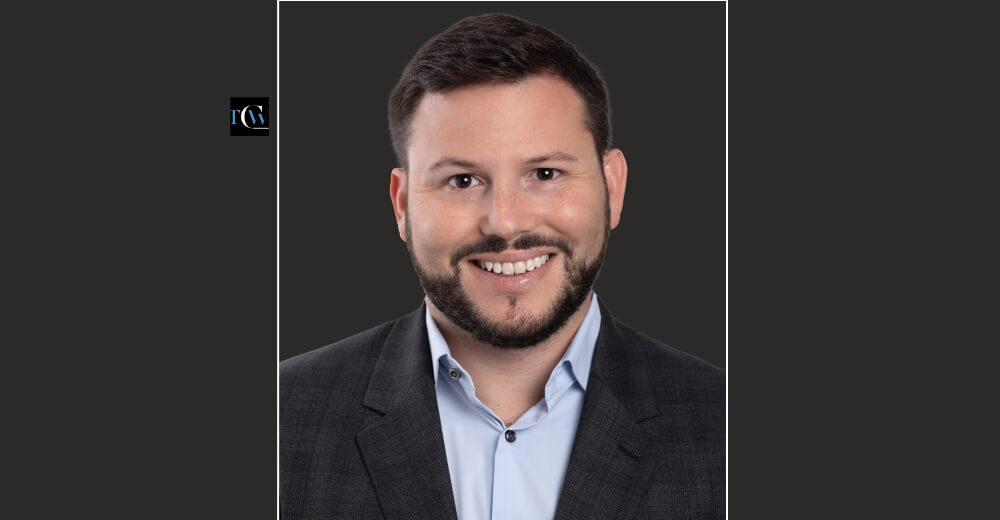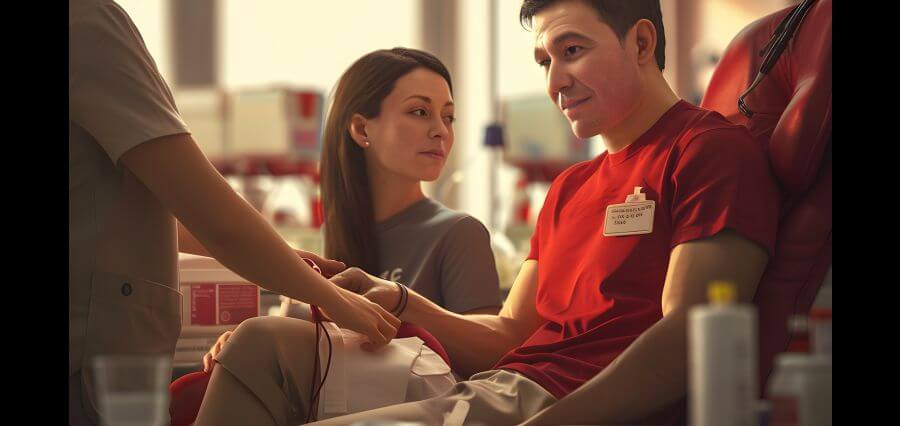Innovation meets necessity in the constantly evolving sector of the Middle East’s medical device industry, where Jordan Pollack, CEO of VeinWay Ltd, emerges as a paradigm in the healthcare world. Originating from Chicago, Jordan’s journey spans continents, driven by a deep passion for biomedical engineering and a commitment to revolutionizing patient care.
VeinWay, under Jordan’s insightful leadership, stands at the forefront of addressing critical unmet needs in interventional radiology, particularly in chronic venous diseases. With roots deeply embedded in Israel’s thriving medical technology, VeinWay’s mission beats with urgency – to improve access to healthcare for patients struggling with chronic vein obstructions, a consequence of Post-Thrombotic Syndrome.
At the core of VeinWay’s innovation lies Traversa, a pioneering solution specifically to address the complex challenges of chronic vein blockages swiftly and safely. This transformative technology not only streamlines procedures but also serves as hope for physicians and patients alike, heralding a new era of medical advancement in the Middle East.
Jordan Pollack’s visionary leadership transcends traditional boundaries, embodying a commitment to regional collaboration and sustainability. With an eye toward the future, VeinWay not only drives technological breakthroughs but also cultivates partnerships to deal with regulatory landscapes and adapt business models for sustained competitiveness. As the Middle East embraces digital health and medical technology, VeinWay’s Traversa emerges as a catalyst for change, propelling vein disease into the spotlight and reshaping the discourse on healthcare delivery.
Let’s dive into the insights and understand how Jordan Pollack’s journey serves as an inspiration to aspiring innovators, illustrating the potential for impactful change in the ever-evolving landscape of the region’s medical device industry!
Can you please briefly introduce yourself and your organization? What is your role and how does your company contribute to the medical device industry in the Middle East?
I’m incredibly passionate about medical devices and healthcare. I grew up in Chicago, IL in the United States. After receiving two degrees in biomedical engineering from the University of Michigan, I moved to Minneapolis, MN, also in the United States to work at Boston Scientific Corp., developing drug-eluting products for peripheral arterial disease. After four years, with incredible experience in multiple engineering roles, I moved to Israel.
Under the umbrella of MEDX Xelerator, I started VeinWay to help physicians overcome the challenges posed by chronic venous occlusions resulting from Post-Thrombotic Syndrome.
VeinWay’s mission is to improve access to healthcare for patients suffering from chronic venous diseases. VeinWay is addressing the largest clinical unmet need facing interventional radiology –chronic venous blockages.
Current vein crossing procedures are challenging, time consuming, and failure prone. Even successful procedures typically require multiple tools resulting in high costs for hospitals. VeinWay’s Traversa was developed specifically to enable physicians to cross these chronic blockages safely, easily, and quickly in the veins.
Traversa has already helped physicians achieve success in seven compassionate use cases and a clinical trial is currently being planned for later in 2024. The company is currently engaged in fundraising a series A round.
VeinWay is effectively helping to show what the Middle East has to offer healthcare systems worldwide. In addition, we are supporting our local economy, as we are working in close cooperation with area medical centers, suppliers, and manufacturers. Sheba/Tel Hashomer Medical Center in Ramat Gan, Israel and Sha’are Tzedek Medical Center in Jerusalem, Israel are two examples.
What are the key trends and innovations shaping the medical device industry in the Middle East region?
One of the trends is more regional cooperation, a direct result of The Abraham Accords. We’ll have VeinWay news on regional cooperation soon.
What are the main regulatory and policy considerations that medical device companies needing to navigate in the Middle East markets?
Many of the Middle Eastern countries recognize US FDA or EU CE mark approvals. Therefore, once those are received, it is possible to get approval in other countries.
How are leading medical device companies in the region adapting their business models and strategies to stay competitive?
We utilize a global sales force and multi-national team to address each region, and foster collaboration with strategic partners to better understand each regional market. We plan to present at regional meetings including EVSS in Dubai next year.
What are the biggest challenges and opportunities for attracting and retaining top talent in the Middle East medical device industry?
The challenge is establishing stability, peace, and free trade in the region to enable the free movement of talent.
In what ways are sustainability and environmental considerations becoming more important in the medical device sector in the Middle East?
I can only speak for VeinWay. Sustainability and environmental considerations are extremely important to VeinWay. We make it a priority to save lives and to do so in a way that respects the environment. For example, we try to use more sustainable plastics and materials in our manufacturing that will not harm the environment. Nor do we use any materials that can be toxic to humanity.
How are advancements in digital health and medical technologies transforming the delivery of healthcare in the region?
Traversa is propelling venous disease to the forefront of medical discussions. Before Traversa, venous disease was relegated to the back room of many conferences with fewer than five attendees. We are already seeing a shift. Now the venous talks take the second stage with 50 attendees. In five more years, we’ll see venous disease at center stage with Traversa being the highlight. This means that we are helping more patients and improving more lives by improving the delivery of healthcare across the region.
What advice would you give to aspiring entrepreneurs looking to launch a successful medical device startup in the Middle East?
If you have a great idea to improve the world, seek some like-minded people and start advancing it. If you need money, investors will come. If you need engineers, they too will come. People want to feel a part of something bigger than themselves. Give them that reason to feel inspired.





